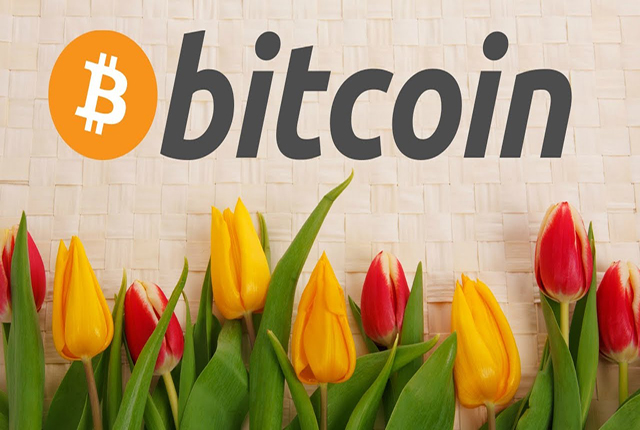
Goldman Sachs just became the bad boy on the block in the bitcoin brethren by saying bitcoin has nothing behind it.
Remember last week when we were all bullish for the Goldman Sachs Bitcoin call?
— Zack Voell (@zackvoell) May 27, 2020
However, when you look at their presentation …
… they don’t say bitcoin has nothing behind it. They just claim it is not an investable asset class (slide 30) and that cryptocurrencies encourage illicit activities from money laundering to darknet markets (slide 32).
Their conclusion is: “we do not recommend bitcoin on a strategic or tactical basis for clients’ investment portfolios even though its volatility might lend itself to momentum-oriented traders”; and compare those who do invest in bitcoin as being similar to those who bought tulips in the 1600s (remember that one?).
My own view is that this is true and false. I personally find bitcoin hard to fathom as an investable asset when there is no tangible thing of value behind the asset. What is the asset behind bitcoin? Data? Hmmmm ….
On the other hand, I completely disagree with the idea that cryptocurrencies encourage illicit activities like money laundering. It’s far easier to money launder through banks, than through cryptocurrencies.
Anyways, there’s been lots of coverage of the Goldman research. Bloomberg reports it fairly neutrally:
One by one, Goldman laid out rebuttals against many of the merits frequently cited by crypto evangelists that aim to hold up the superiority of the digital tokens. Cryptocurrencies, including Bitcoin, are not an asset class -- they do not generate cash flow or earnings and do not provide consistent diversification benefits. Nor is there evidence they are an inflation hedge, the report said. While hedge funds might find digital tokens appealing due to their high volatility, that allure alone doesn’t form a viable investment rationale, according to Goldman.
Bitcoin investors often cite its limited supply, capped at 21 million, as a catalyst for an ultimate price surge. But, Goldman said, cryptocurrencies as a whole are not a scarce resource. For instance, some of the largest cryptocurrencies, including the Bitcoin-offshoot Bitcoin Cash, were formed following a programming fork. The bank also cited recent illicit activities tied to cryptocurrencies, including Ponzi schemes, ransomware attacks and money laundering.
Meantime, the bitcoinisters and libertarians reacted fairly angrily.
Hey @GoldmanSachs, I fixed this for you.
I accept payment in Bitcoin, DM me for my wallet. pic.twitter.com/FfDGtgi8KI— Logan (@CryptoLoganS) May 27, 2020
And accused the Goldman Sachs analysts’ research as lazy.
Agree. I don't mind people having views opposed to mine. What disappoints me is that the GS pages felt "lazy" i.e. poorly researched, off-the-shelf with little thought put into them. If anyone from the @GoldmanSachs crypto desk is feeling nervous 🪓, @TheSpartanGroup is hiring! https://t.co/3wrGNwQFFk
— Casper Johansen (@CasperJohansen) May 28, 2020
Probably the best coverage was in Bill Barhydt’s blog (he’s the CEO of cryptowallet Abra). Bill accused the analysts of misinterpreting four key areas and were:
- not understanding or wanting to acknowledge what a deflationary asset is or what eventually happens to them all;
- not acknowledging the true nature of Bitcoin’s scarcity, or the strength of its hardened network leading to its value as the best hard money ever created;
- not understanding hard forks and incorrectly assuming that a hard forked cryptocurrency with the name Bitcoin mitigates Bitcoin’s scarcity feature; and
- associating BTC with scams without acknowledging the Internet’s past and beginnings and parallels to BTC's potential market maturation.
I’m personally neutral on bitcoin. I HODL as it’s fun and play with crypto out of curiosity, but I don’t believe it’s an asset class as I cannot see the asset. Just my personal view. You probably have yours and, at the church of bitcoin, anyone can be a priest.
Chris M Skinner
Chris Skinner is best known as an independent commentator on the financial markets through his blog, TheFinanser.com, as author of the bestselling book Digital Bank, and Chair of the European networking forum the Financial Services Club. He has been voted one of the most influential people in banking by The Financial Brand (as well as one of the best blogs), a FinTech Titan (Next Bank), one of the Fintech Leaders you need to follow (City AM, Deluxe and Jax Finance), as well as one of the Top 40 most influential people in financial technology by the Wall Street Journal's Financial News. To learn more click here...

